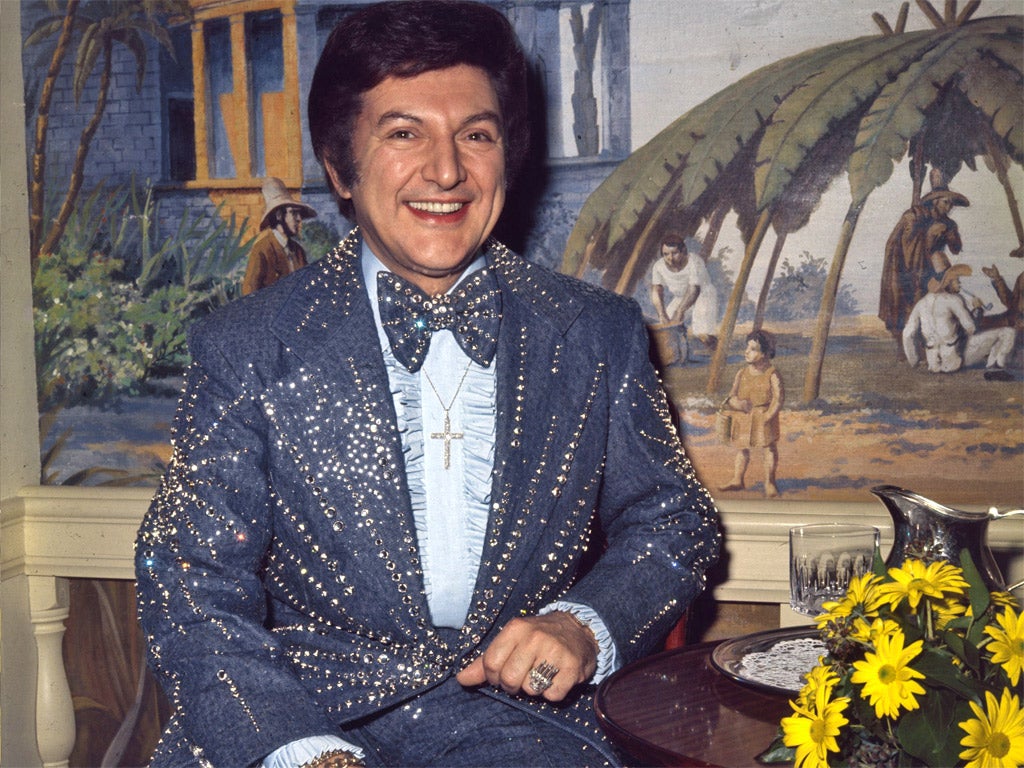What's the link between homosexuality and having a 'gay voice'
Self-conscious about the way he speaks, David Thorpe has explored why some people in his community ‘sound gay’ and others don’t in a new documentary.

Your support helps us to tell the story
From reproductive rights to climate change to Big Tech, The Independent is on the ground when the story is developing. Whether it's investigating the financials of Elon Musk's pro-Trump PAC or producing our latest documentary, 'The A Word', which shines a light on the American women fighting for reproductive rights, we know how important it is to parse out the facts from the messaging.
At such a critical moment in US history, we need reporters on the ground. Your donation allows us to keep sending journalists to speak to both sides of the story.
The Independent is trusted by Americans across the entire political spectrum. And unlike many other quality news outlets, we choose not to lock Americans out of our reporting and analysis with paywalls. We believe quality journalism should be available to everyone, paid for by those who can afford it.
Your support makes all the difference.After a particularly bad break-up, David Thorpe, a journalist who’s in his forties, decided to take his mind off things by leaving his cats in his Manhattan apartment and drowning his sorrows at a gay beach town on Fire Island. On the Friday-night train journey he found himself surrounded by loud chattering gay men. He felt repelled. “Why did we all insist on sounding like a pack of braying ninnies?” he thought to himself.
“I felt alienated from myself and from all the people around me, and the instrument of the alienation was our voice,” he tells me over the phone from New York.
“I knew then that I had to get to the bottom of that feeling and to the importance of the voice as part of gay identity. As soon as I started speaking to my peers, I discovered that our voice was something that most, if not all, of us had thought about at some point and had anxiety about.”
It was the start of a four-year journey of self-discovery during which Thorpe tried to figure out his so-called “gay voice”: when did he start talking that way, what caused it, how exactly did it sound, and, finally, what was so wrong with it anyway? The results can be seen in his new documentary, Do I Sound Gay?, which features interviews with linguists, academics, family and friends, as well as a number of high-profile personalities, including David Sedaris and Dan Savage.
A high-pitched, lisping voice that goes up at the end has been part of the gay male stereotype for years. When Thorpe visits Susan Sankin, a speech pathologist, she identifies nasality, a lot of upspeak, a holding-on to words, and a sing-song pattern in his voice which she believes is the result of “code-switching”. Simply, he has changed the way he talks to suit different occasions so much that he can’t remember what he used to sound like. He insists he wants a “normal, unremarkable way of talking” and he is given vocal exercises to practise.
Another expert that he interviews for the film is a Canadian linguist who studies vocal microvariations between gay and straight men and speculates that many gay men more readily pick up speech codes from women. Interestingly, a straight friend of Thorpe’s has what is considered to be an archetypal “gay voice” and it turns that out he was raised entirely by women at an ashram.
Having no recordings of his voice from when he was younger, Thorpe goes to see his family members in South Carolina who claim that he didn’t start speaking the way he does now until his first year at college, which is the same time that he came out. A friend suggests that he was “advertising” his homosexuality, having kept it a secret for so long.
Elsewhere, the film looks at how the media might have affected his relationship with his voice. When he was younger, Thorpe notes, the only “gay voices” on television were those belonging to figures such as Liberace and Charles Nelson Reilly, the host of The Match Game. He also wonders if Disney villains such as Aladdin’s Jafar and The Lion King’s Scar, with their soft, threatening voices, have made young people associate sounding gay with being evil. It pleases him to hear so many more “gay voices” represented today, especially young vloggers such as Lohanthony and Tyler Oakley.
“The film is a moment in my life where I don’t have confidence for a number of reasons,” Thorpe says. “Growing up, I was always told that what was wrong with me was that I was gay, so it’s not hard to understand that in a moment of vulnerability I might also feel insecure about my sexuality. And my voice is probably the biggest signifier of that.”
As for taling”normally”, Thorpe has given up the exercises now and has embraced his voice. As Dan Savage, the activist who founded the It Gets Better campaign, says in the film: “What’s wrong with sounding like you are who you are – a gay man?”
Join our commenting forum
Join thought-provoking conversations, follow other Independent readers and see their replies
Comments